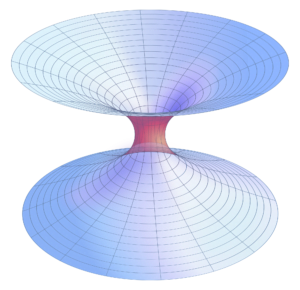
In networking, black holes refer to those spot in the network where Arriving or deriving commerce is left silently (or “dropped”) without notifying the origin, which does not reach the desired recipient of the data. While examining the topology of the network, black holes are invisible themselves and can be tracked only by tracking lost traffic.
Dead Addresses
The most common form of a black hole is only an IP address that specifies a host machine that is not running or an address that has no host assigned.
Even though TCP / IP provides the means of communicating the delivery failure to the sender via ICMP, but due to such addresses, the targeted traffic is often dropped.
Note that a dead address will only be undesirable for protocols that are both connectionless and unreliable (e.g., UDP). Connection-oriented or reliable protocols (TCP, RUDP) will either fail to connect to a dead address or will fail to obtain the requisite approval.
Firewall and ‘Stealth’ Report
Most firewalls (and router for home use) can be configured to leave the packet addressed to prohibited hosts or ports, resulting in small or large “black holes” in the network.
Personal firewalls that do not respond to ICMP resonance requests (“ping”) are specified by some vendors in “stealth mode”.
Despite this, IP addresses of firewall hosts configured in most networks such as this are easily separated from invalid or otherwise unrecoverable IP address: On encountering the latter, a router will usually respond with the ICMP network RSP. Hostable error. NAT, as used in home and office router, is usually a more effective way to obscure the layout of an internal network.

Black Hole filtering
Black hole filtering refers specifically to the dropping packet at the routing level, usually using a routing protocol to apply to filter to multiple routers at once, often responding to the dynamic denial of service attacks.
Remote trigger black hole filtering (RTBH) is a technology that provides the ability to leave undesirable traffic before entering a protected network. Internet Exchange (IX) provider usually helps this technique to filter out attacks such as its members or participants.

F
DNSBL(Traffic Management)
The DNS-based Blackhole List (DNSBL) or Real-Time Blackhole List (RBL) is a list of IP addresses published through the Internet Domain Name System (DNS) that can be used as a single zone file that can be used by DNS A live DNS zone that can be queried in real time can be used by the server software. DNSBLs are often used to publish spamming related computer or network addresses; Most mail server software can be configured to reject or flag messages that have been sent from the site listed on one or more such lists. The term “blackhole list” is sometimes associated with the word “blacklist” and “blocklist”.
A DNSBL is a software apparatus rather than a general list or scheme. There are dozens of DNSBLs in existence, Who use a variety of criteria for listings and delisting of addresses. These include listing the addresses of other machines used to send zombie computers or spam, listing the ISP’s address, which voluntarily lists host spammers, or lists those addresses that send spam to a Honeypot system.
Since the creation of the first DNSBL in 1997, the operations and policies of these lists have often been controversial, both in Internet advocacy and sometimes in lawsuits. Many email system operators and users consider DNSSL as a valuable tool for sharing information about spam sources, but others, including some of the major Internet activists, have objected to them as censorship. In addition, a very small number of DNSBL operators are aiming for lawsuits filed by spammers, who are demanding to shut down the list altogether.


